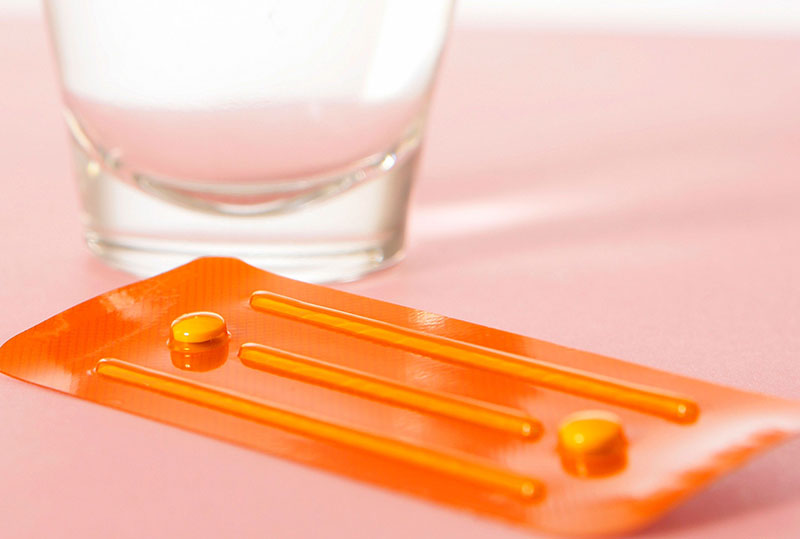
What Is a Morning After Pill? What Are The Side Effects?
If you are sexually active, there is a chance that you may need to take the morning after pill at some point in your life. Here we will discuss what the morning after pill is, and outline some of the potential side effects.
What Is a Morning After Pill?
The morning after pill, also known as emergency contraception, is a type of birth control that women can take after they have unprotected sex. There are several different types of morning after pills, and each one has its own set of side effects. It can be taken up to five days after unprotected sex occurs. The sooner it is taken, the more effective it will be at preventing pregnancy.
The Morning-After Pill is not an abortion pill and it will not cause abortion or harm a fetus in any way.
The Morning After Pill, How Does It Work?
Since the morning after pill is a large dose of hormones, it works by preventing you from ovulating (releasing an egg from your ovary). This means that if sperm fertilize an egg, there’s no egg for it to attach to. The morning after pill also thickens the mucous in your cervix, which makes it harder for sperm to go through and reach an egg.
There are lots of different brands that all do the same thing, just in slightly different ways. Plan B One Step contains the progestin levonorgestrel as its active ingredient, while ellaOne has ulipristal acetate as its main ingredient. Both these methods decrease your chance of pregnancy. They are not that different but ulipristal acetate might work slightly better.
The morning after pill does not protect you against STDs/STIs, so make sure to use condoms as well!
Morning After Pill Side Effects
Keep in mind that everyone’s body reacts differently to this medication, so not everyone will experience all of these side effects. If you have any concerns or questions, be sure to consult with your doctor.
- Diarrhea – Diarrhea is possible when you take the morning-after pill. If diarrhea continues for more than 24 hours or it’s severe, call your doctor immediately. You may need to stop taking the morning after pill and switch to a different kind of birth control method.
- Headaches – Some women experience headaches when they take the morning-after pill. If you have a headache after taking the morning after pill, take an over-the-counter pain reliever such as acetaminophen (Tylenol) or ibuprofen (Motrin, Advil). Be sure to follow the directions on the label for how much medication to take.
- Irregular Periods – The morning after pill can cause changes in your menstrual cycle. Your periods may be lighter or heavier, or you may have spotting in between periods. It typically takes one to three months after the morning-after pill for your cycle to get back to normal. If you don’t have a period within 3 weeks of taking the morning-after pill, you may be pregnant.
- Breast Tenderness – It’s possible to get breast tenderness when you take the morning after pill. If your breasts are very sore, try wearing a supportive bra or taking an over-the-counter pain reliever such as acetaminophen (Tylenol) or ibuprofen (Motrin, Advil).
- Abdominal Pain – Severe abdominal pain may be a sign of an ectopic pregnancy, which is when the embryo implants outside of the uterus (womb). If you experience severe lower abdominal or back pain after taking Plan B, be sure to contact your doctor right away.
- Nausea – Nausea is one of the most common side effects of the morning after pill. If you throw up for more than 24 hours after taking the morning after pill, it is possible that all of the medication was not absorbed into your bloodstream. Call your doctor right away if this happens so you can take another dose of medication.
How Long After Unprotected Sex?
If you don’t take the morning after pill within 120 hours (5 days) after unprotected sex, it’s much more likely that you will get pregnant. You can use our Period Calculator to help determine when you are supposed to get your period. You can also talk to a nurse at your local clinic for more information about pregnancy and being pregnant. The morning after pill reduces the risk of pregnancy by 97% when taken correctly.
Although the morning after pill is a very effective emergency contraceptive, it’s not meant as a regular form of birth control. Plan B One-Step should only be used occasionally. Make an appointment with your doctor so you can discuss the best form of birth control for you.
Dr James S Pendergraft | Orlando Women’s Center | Abortion Pill Clinic | Articles On Abortion

Leave a Reply
You must be logged in to post a comment.